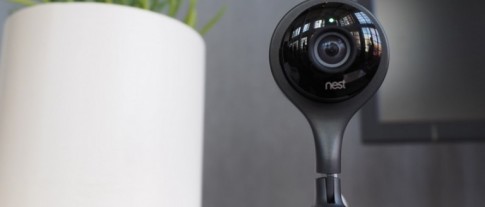– Top U.S. Official Admits – Government Will Use “Internet of Things” to Spy on the Public:
You can’t say you weren’t warned. The writing on the wall that “smart devices” would prove to be manna from heaven for spy agencies and hackers around the word has been obvious for a very long time.
A year ago, I published two articles on this topic. The first highlighted the revelation that Samsung’s Smart TV can and will listen to your conversations, and will share the details with a third party. The second had to do with the release of a high-tech Barbie that will listen to your child, record its words, send them over the internet for processing. If you missed these posts the first time around, I suggest you get up to speed:
A Very Slippery Slope – Yes, Your Samsung Smart TV Can Listen to Your Private Conversations
Moving along to today’s article, we learn that the Director of National Intelligence, James Clapper, admitted that the government intends to use the “Internet of Things” for spying on the public. As Trevor Timm of the Guardian notes:
If you want evidence that US intelligence agencies aren’t losing surveillance abilities because of the rising use of encryption by tech companies, look no further than the testimony on Tuesday by the director of national intelligence, James Clapper.
As the Guardian reported, Clapper made clear that the internet of things – the many devices like thermostats, cameras and other appliances that are increasingly connected to the internet – are providing ample opportunity for intelligence agencies to spy on targets, and possibly the masses. And it’s a danger that many consumers who buy these products may be wholly unaware of.
“In the future, intelligence services might use the [internet of things] for identification, surveillance, monitoring, location tracking, and targeting for recruitment, or to gain access to networks or user credentials,” Clapper told a Senate panel as part of his annual “assessment of threats” against the US.
Of course, James Clapper is the guy who lied to Congress and faced zero repercussions. As is always the case when it comes to government criminality.
Privacy advocates have known about the potential for government to exploit the internet of things for years. Law enforcement agencies have taken notice too, increasingly serving court orders on companies for data they keep that citizens might not even know they are transmitting. Police have already been asking Google-owned company Dropcam for footage from cameras inside people’s homes meant to keep an eye on their kids. Fitbit data has already been used in court against defendants multiple times.
But the potential for these privacy violations has only recently started reaching millions of homes: Samsung sparked controversy last year after announcing a television that would listen to everything said in the room it’s in and in the fine print literally warned people not to talk about sensitive information in front of it.
While Samsung took a bunch of heat, a wide array of devices now act as all-seeing or all-listening devices, including other television models, Xbox Kinect, Amazon Echo and GM’s OnStar program that tracks car owners’ driving patterns. Even a new Barbie has the ability to spy on you – it listens to Barbie owners to respond but also sends what it hears back to the mothership at Mattel.
Then there are the rampant security issues with the internet of things that allow hackers – whether they are criminal, government or something in between – to access loads of data without any court order, like the creeps who were eavesdropping on baby monitors of new parents. Just a few weeks ago, a security researcher found that Google’s Nest thermostats were leaking users’ zipcodes over the internet. There’s even an entire search engine for the internet of things called Shodan that allows users to easily search for unsecured webcams that are broadcasting from inside people’s houses without their knowledge.
While people voluntarily use all these devices, the chances are close to zero that they fully understand that a lot of their data is being sent back to various companies to be stored on servers that can either be accessed by governments or hackers.
Don’t say you weren’t warned.
For related articles, see:
A Very Slippery Slope – Yes, Your Samsung Smart TV Can Listen to Your Private Conversations
Big Brother is Coming…To Your Brokerage Account
Retail Big Brother – Mannequins Are Now Using Facial Recognition Technology
Mayor Bloomberg on Drones: “Oh it’s Big Brother. Get Used to it”
In Liberty,
Michael Krieger
